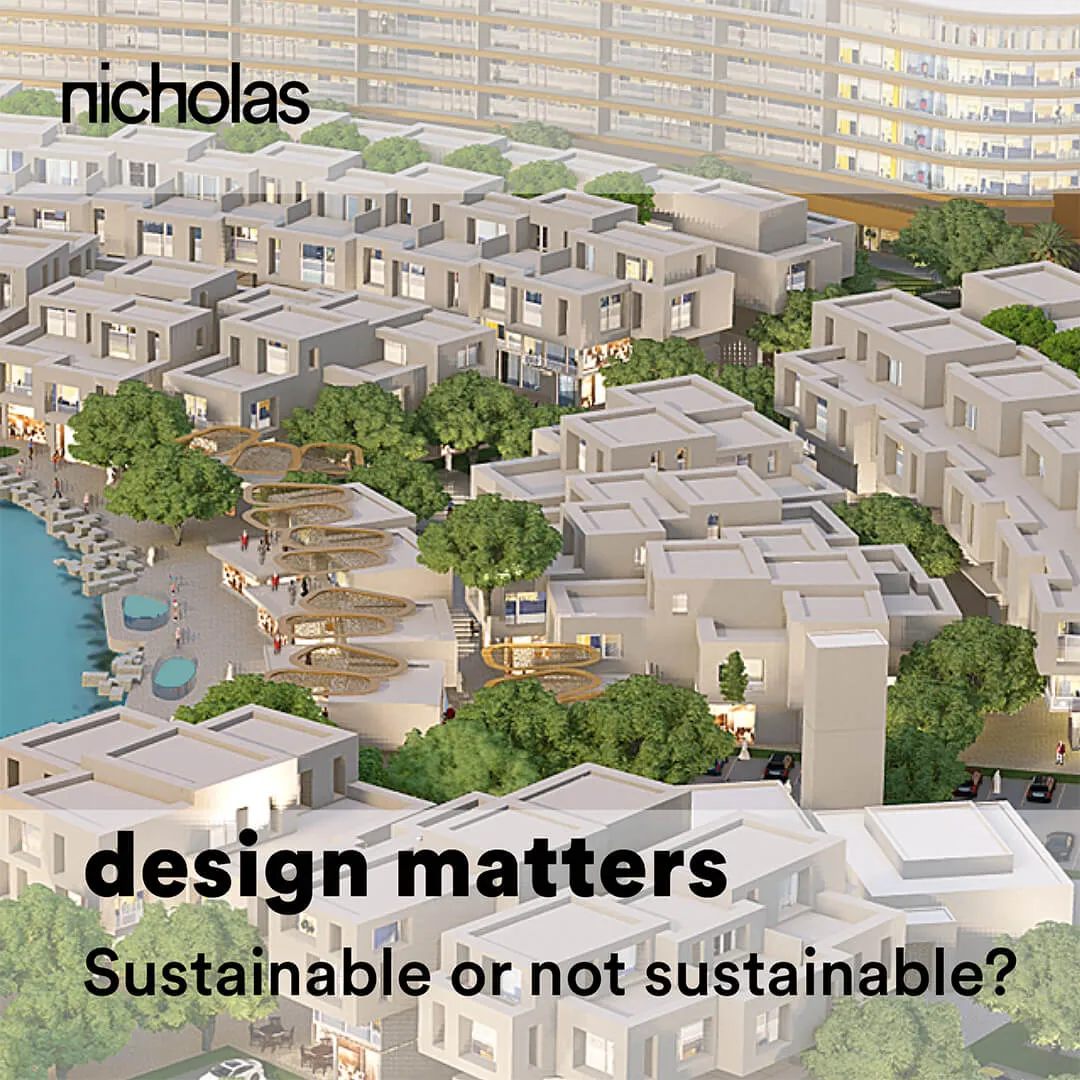
Many current projects are lauded as being “sustainable”. Is it a credential which is bestowed too lightly?
A new single-use retail development which isn’t connected to its neighbours, or to complimentary land uses in a meaningful way, is not sustainable.
Placing solar panels on the roof is positive and helpful, but this alone does not make it sustainable.
Constructing more buildings – but in the same way we always have done – isn’t “progress”.
If we are serious about reducing energy consumption, we need to significantly increase the thermal resistance of building envelopes – by better insulating them.
Fully glazed facades which are not modulated, or orientated to avoid solar heat gain, are not sustainable.
Environmental responsiveness is required across our urban fabric, and must be embedded in city planning, if we truly want to be “sustainable”.
Open boulevards in Middle East cities which resemble the Champs-Élysées – with no regard for the heat or climate – are not sustainable.
Walking and cycling routes must be planned in shade, and at distances which are “manageable” – meaning that our cities need to become more compact rather than more spread out.
Master plans spanning great distances, which require long commutes, are not sustainable.
We need to examine the grain of our cities, and of our new developments, and ask ourselves: are they truly sustainable? Or is there some distance to go?